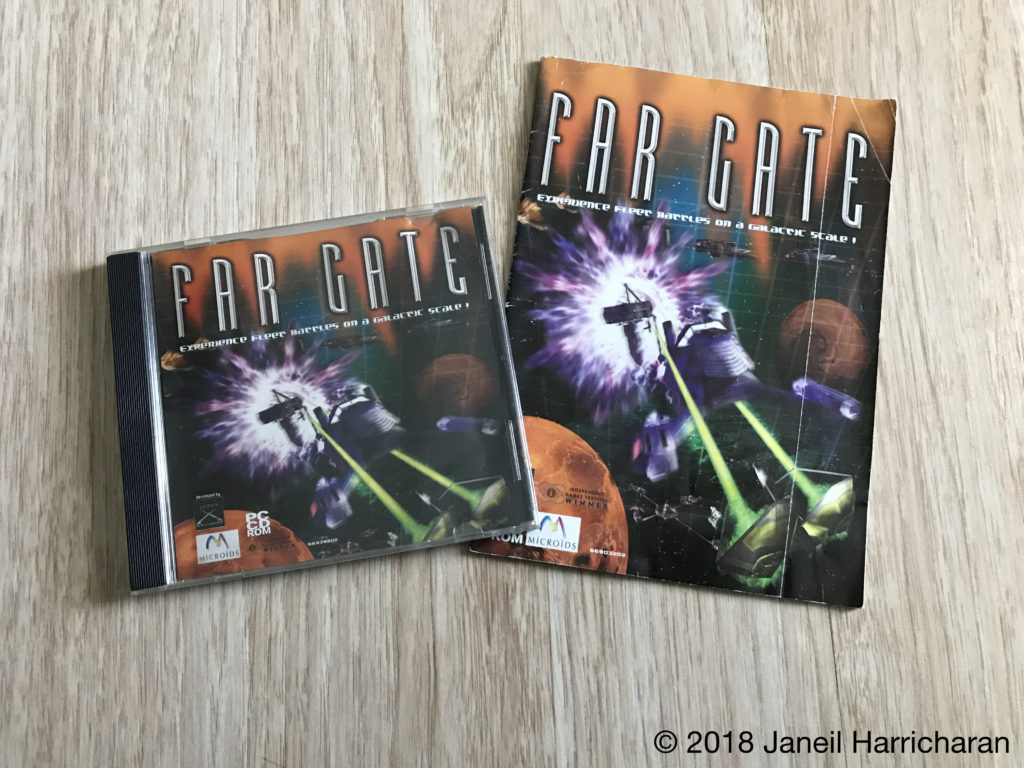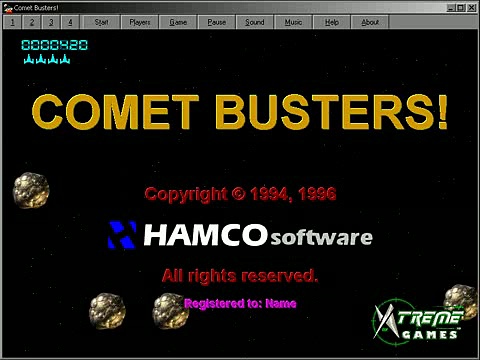In 2001, I was slowly allowed to start buying PC games that I liked with my allowance. The first few titles were stuff available off the Big Lots store shelf, as they were often cheaper. Things like Bugdom and Disney’s Atlantis: Trial by Fire. However, one winter evening near Christmas a game caught my attention. It was a game by the name of Fargate, and it was 50% off in a bargain bin when I had walked in that day. I HAD to get it, considering it looked to be a more complicated game than the “standard” education games I’d play.
It was quite a trip. I had technical difficulties with the game for several years so I never played it past the 4th stage. When I went to college in 2010, I discovered my issues stemmed from the CD being scratched around the rim. I found a cheap replacement copy on eBay and proceeded to beat the game not too far after.

My original manual from 2001, along with the more recently acquired CD case from eBay. I possess the box but was not able to find it for publishing this interview.
When I started to do my interview series, Fargate was one of the games I had an easier time finding people who worked on. In addition to finding such little background information on the game, I felt a proper notation in the interwebs was needed.



